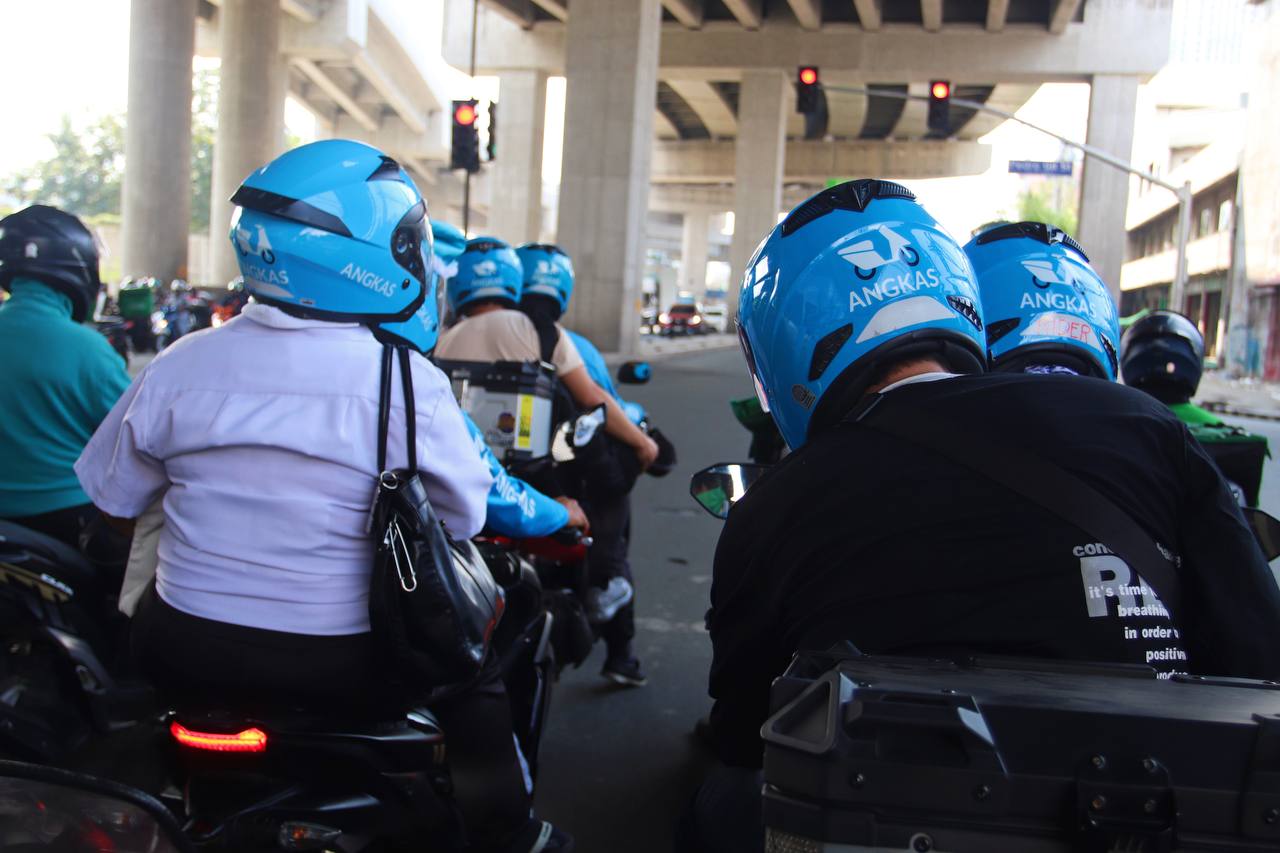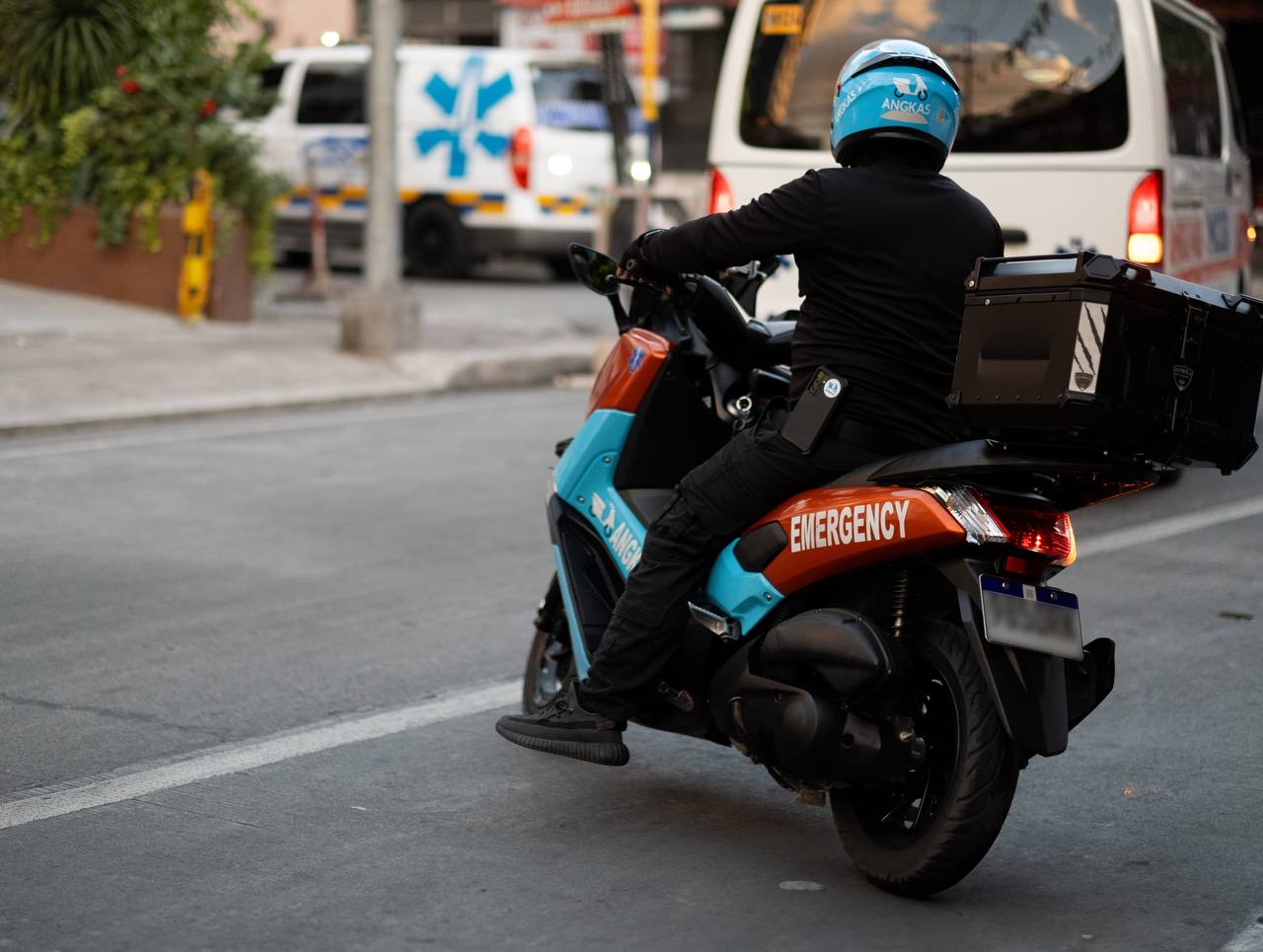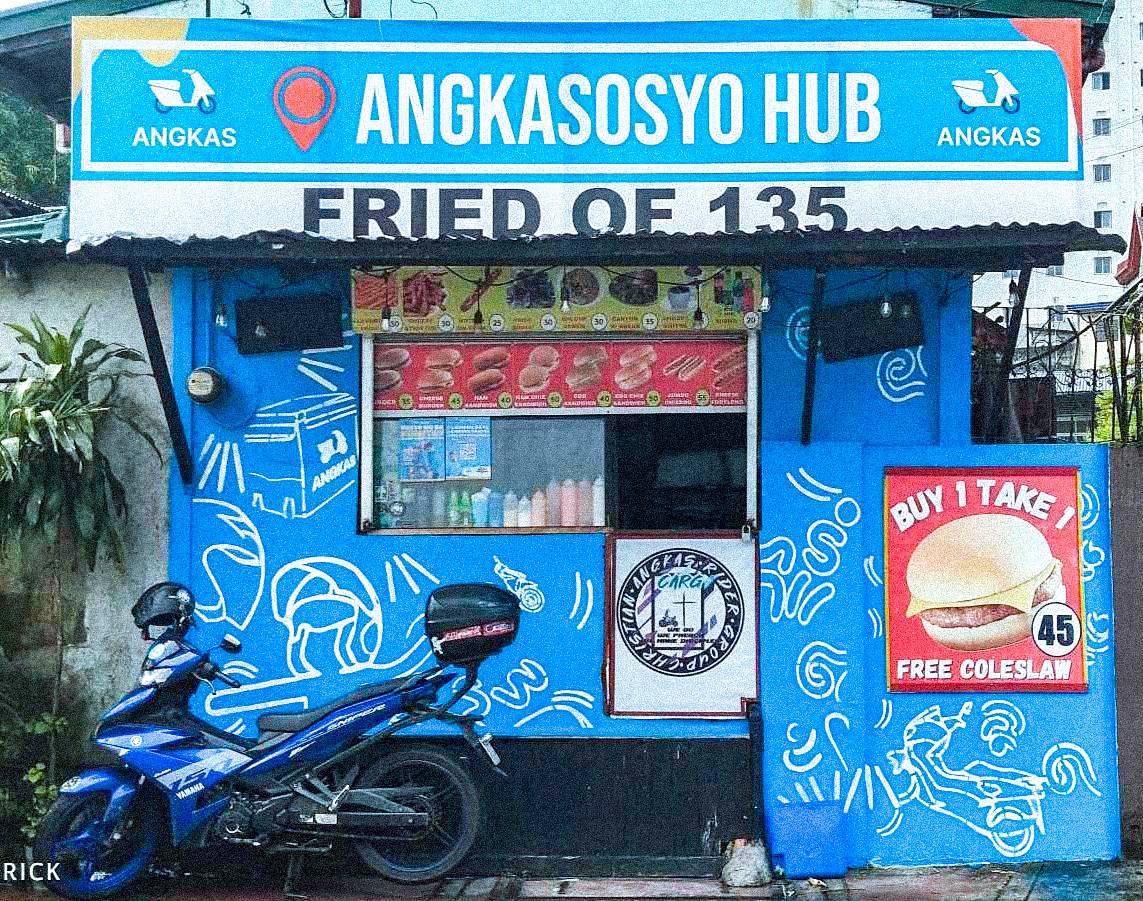Riding the wave: Elevating the informal economy
In a bustling city like Manila, the sight of motorbikes weaving through traffic is as common as the scorching midday sun. These motorbikes, operated by our hardworking "habal-habal" riders, are more than just vehicles; they are lifelines. They connect people, move goods, and provide a crucial service that formal systems often overlook.
At Angkas, we have always believed in the power and potential of these informal workers. Today, I want to highlight why uplifting the informal sector is not just an economic necessity but a moral imperative.

The backbone of our economy
The informal sector, often seen as the underbelly of the economy, is actually its backbone. According to the International Labour Organization (ILO), about 61% of the world's employed population makes a living in the informal economy. In the Philippines, this figure is even higher, with millions relying on informal work to sustain their families. Despite this, informal workers are frequently ignored, abandoned, or forced into ill-fitting financial systems.
These workers—including our motorcycle taxi riders, street vendors, and small-scale farmers—drive consumption and generate significant value-added sales tax. They are the unseen force propelling our economy forward. By recognizing and supporting them, we can harness their full potential to foster economic growth and social progress.

Professionalizing the motorcycle taxi industry
At Angkas, our mission has been to professionalize the motorcycle taxi industry. This journey began with the realization that "habal-habal" riders, despite their crucial role, were often marginalized. They lacked access to proper training, fair compensation, and essential benefits. We decided to change that.
By providing comprehensive training programs, safety protocols, and a structured platform, we have helped transform "habal-habal" into a legitimate and respected profession. Our riders now enjoy better earnings, access to insurance, and a sense of pride in their work. This professionalization not only uplifts individual riders but also enhances the overall perception of the informal sector.
Building a customized ecosystem
One of the biggest challenges faced by informal workers is the mismatch between their needs and existing financial systems. Traditional banking and financial services often do not cater to the unique circumstances of informal workers, leaving them without access to credit, savings, and other essential services.
To address this, we need to build an ecosystem tailored to the needs of informal workers. This includes:
- Flexible financial services: Develop financial products that accommodate irregular incomes and provide easy access to credit and savings. Microfinance institutions and fintech companies can play a pivotal role in this transformation.
- Health and safety nets: Create affordable health insurance and social protection schemes that cover informal workers and their families. This will provide a safety net and help them manage risks better.
- Skills development: Invest in continuous training and skills development to ensure informal workers can adapt to changing economic landscapes. This will enhance their employability and open up new opportunities for growth.
- Legal recognition: Advocate for policies that recognize and protect the rights of informal workers. This includes labor laws that ensure fair wages, safe working conditions, and access to legal recourse.
Safety: A critical pillar for success

Safety is an often overlooked but absolutely essential component of uplifting the informal sector, particularly in the motorcycle taxi industry. Ensuring the safety of both riders and passengers is not just a regulatory requirement; it is a fundamental aspect of professionalization and respect for the profession.
- Training and certification: At Angkas, we have implemented rigorous training programs that all riders must complete. These programs cover safe driving practices, customer service, and emergency response. Certification ensures that only qualified individuals are allowed to operate, thereby increasing trust and reliability.
- Safety equipment: Providing the necessary safety gear, such as helmets and protective clothing, is crucial. We ensure that our riders are equipped with high-quality safety equipment to reduce the risk of injuries.
- Regular maintenance checks: Regular maintenance of motorbikes is mandatory. This includes routine checks and repairs to ensure that all vehicles are in optimal condition, minimizing the chances of accidents due to mechanical failures.
- Monitoring and support: Implementing a monitoring system helps track rider behavior and adherence to safety protocols. Real-time support and feedback mechanisms can further enhance safety standards.
The power of the informal sector

The informal sector's power lies in its resilience and adaptability. During the COVID-19 pandemic, when many formal businesses struggled, informal workers quickly adapted to new market demands. For instance, many "habal-habal" riders pivoted to delivery services, ensuring that essential goods reached households even during lockdowns.
Moreover, informal workers contribute significantly to community development. Their earnings often go towards local businesses, creating a ripple effect that boosts local economies. By uplifting the informal sector, we are not just helping individual workers; we are strengthening entire communities.
Real stories, real impact
Consider the story of Jess, a former "habal-habal" rider who joined Angkas. Before joining us, Jess struggled to make ends meet, his income fluctuating daily. He had no health insurance and worried constantly about his family's future. After joining Angkas, he received proper training, a stable income, and access to insurance. Today, Jess not only supports his family comfortably but also dreams of sending his children to college.
By uplifting the informal sector, we are not just helping individual workers; we are strengthening entire communities.
Stories like Jess' are not unique; they are the reality of many informal workers. By providing them with the right tools and support, we can unlock their potential and help them achieve their dreams.
The way forward
Uplifting the informal sector requires a collective effort. Governments, businesses, and civil society must come together to create an inclusive ecosystem that recognizes and supports informal workers. This means implementing policies that promote financial inclusion, investing in skills development, and ensuring that informal workers have access to essential services.
At Angkas, we remain committed to this cause. We will continue to advocate for the rights of informal workers and strive to create a system that values their contributions. By doing so, we hope to inspire others to join us in this mission.
In conclusion, the informal sector is not just an economic powerhouse; it is the heart and soul of our society. By uplifting informal workers, we are not only driving economic growth but also fostering a more inclusive and equitable future for all Filipinos. Let us recognize their power, support their journey, and celebrate their contributions. Together, we can build a brighter tomorrow.


